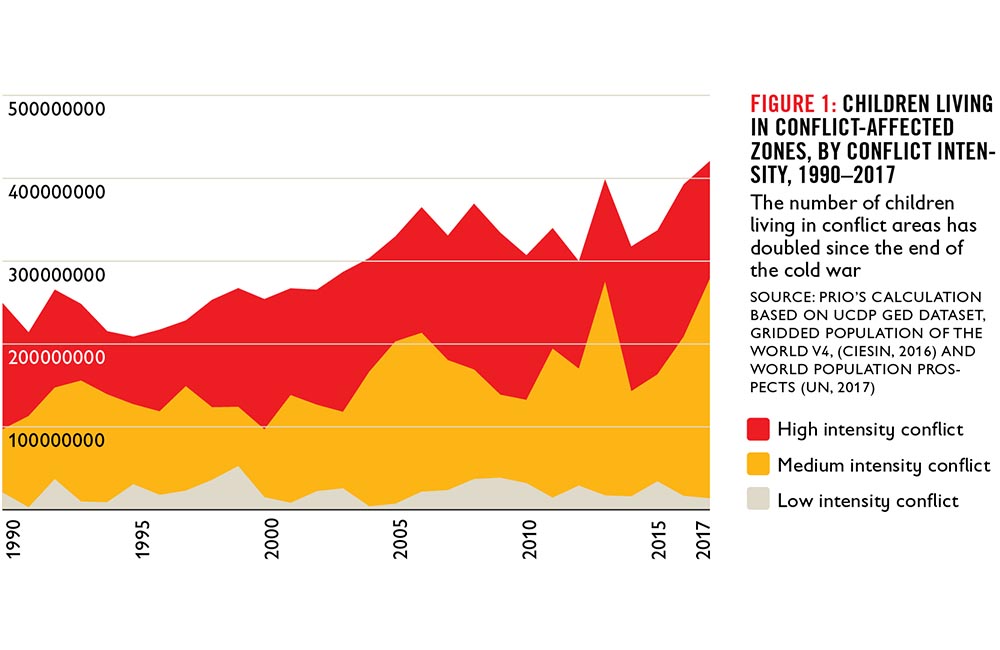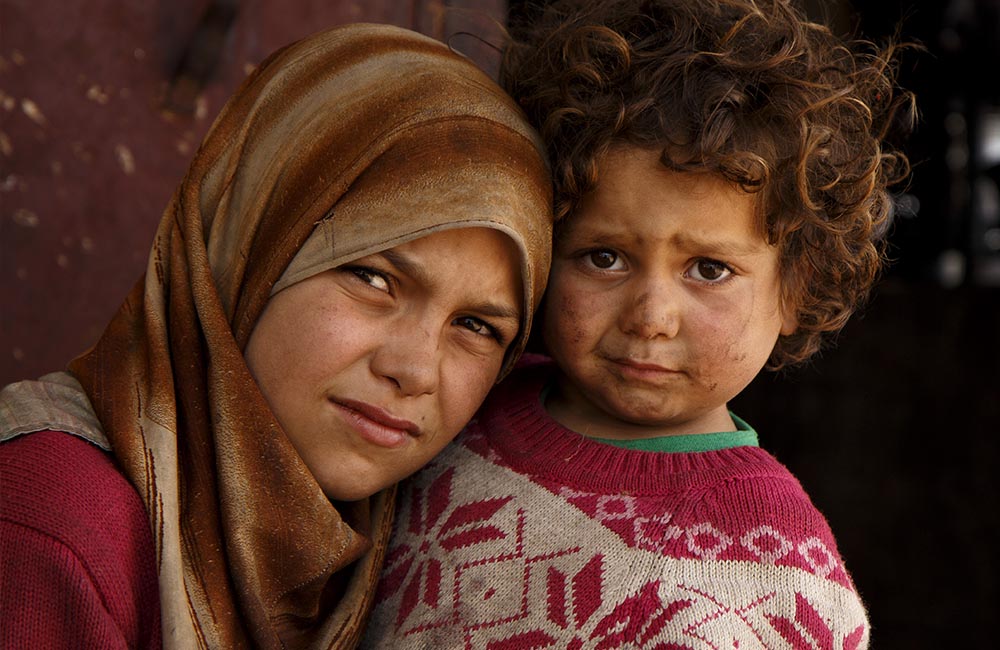“Every war is a war against children.”
One hundred years on, the words of Save the Children founder Eglantyne Jebb remain as true as ever.
Right now, more children are being exposed to armed violence than at any time in the past 20 years. The number of violations perpetrated against them has reached a record high. And the damage done to children – physically, psychologically and in terms of their development – will have a devastating impact on their future.
Ending the war on children so that they may survive and flourish is now the international community’s urgent task.
Growing up amid bullets and bombs
The new report, Stop the War on Children, — commissioned by Save the Children and conducted by the Peace Research Institute in Oslo — has found that more than 420 million children are living within conflict zones.
This is roughly one in five children worldwide.
The report also states that at least 870,000 children under five died as a result of armed conflict between 2013 and 2017 — five times more than the almost 175,000 fighters killed in the same period.
The Stop the War on Children report not only shines a light on the shocking facts in comprehensive detail but also provides recommendations for what we all – for the sake of a peaceful and prosperous future – can do about it.

A violation of children’s basic rights
Last year, there were more grave violations carried out against children in conflict than ever before.
Abducted and abused. Killed and maimed. Raped and recruited. Denied medical care and aid. Children are no longer just caught in the crossfire – they have become targets in wars raged by adults.

Zahra*, 11, with her sister Fatima*, 3, in the doorway of their family’s temporary shelter in the city of Idlib, north western Syria.
This is truly an era of war on children.
CEO of Save the Children International, Helle Thorning-Schmidt, says the resolution must come not from choosing sides, but from choosing children.
“When the rules of war are broken, the international community must be clear that this will not be tolerated and hold perpetrators to account,” she says. “And for the children whose lives are wrecked by conflict, we must do all we can to protect them from further harm and help rebuild their future.
“The suffering of so many millions of children is not inevitable and tackling it is in the interests both of our essential shared humanity as well as our national priorities.”